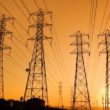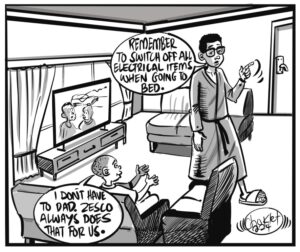The Jesuit Centre for Theological Reflection (JCTR) has opposed the proposal by Zesco to increase electricity tariffs, warning that the move would worsen the country’s economic situation.
In a statement, Wednesday, JCTR social and economic development officer Paul Chileshe stated that the proposed electricity tariff hike would lead to a reduction in production by commercial entities, which would later result in job losses.
“On 9th March, 2019, Zesco applied to the Energy Regulation Board (ERB) to revise retail electricity tariffs upwards. Among the proposals include the downward adjustment of the lifeline tariff from 200kwh to 100kwh and elimination of the monthly fixed charge for residential and commercial customers. Zesco is basing proposed adjustments of tariffs on prevailing economic conditions, such as the rise in the prices of goods and services and fluctuation of the Kwacha against the dollar that they say has contributed to increased operating costs. Zesco’s equipment and supplies are procured in foreign currency; therefore, weakening of the Kwacha against the dollar is making procurement expensive for the parastatal,” Chileshe stated.
“The proposal by Zesco to increase electricity retail tariffs will likely worsen Zambia’s economic performance and perpetuate the high cost of living. Electricity is a basic need that households, small businesses, commercial zones, mines and other industries depend on to run a number of activities. The proposed tariff adjustment shows that the residential lifeline consumption up to 100kwh will increase by 213 per cent from 0.15Kwh to 0.47Kwh. The commercial consumption up to 200Kwh will increase by 98 per cent from 0.54kwh to 1.07kwh. The social service tariffs will increase by 143 per cent from 0.49Kwh to 1.19Kwh. Maximum demand tariffs from 16Kva to 300Kva will increase by 75 per cent from 24.45Kva to 42.79Kva. The upward adjustment of tariffs will make electricity unaffordable, especially for the most vulnerable and this will have adverse impacts on our economy that is currently struggling to provide social protection mechanisms for its poor. Production in industries is likely to reduce due to increased production costs and these higher production costs will be passed on to the consumer. Reduced production, in-turn, has the potential to result in job losses.”
He stated that it was disheartening for Zesco to propose electricity tariff increment when government was failing to pay workers on time.
“JCTR notes that in 2017 when electricity tariffs were revised upwards by 75 per cent, the JCTR Basic Needs Basket started going up, shifting from ZMW4,957 in December, 2017, to ZMW 5,229 in January, 2018. Ever since that sharp increase in electricity tariffs, the cost of living has remained high and unaffordable for the majority poor and most vulnerable in society. It is from this experience that the JCTR strongly opposes Zesco’s proposal to revise tariffs upwards, especially at a time that Zambia is having serious financial distress. Recent struggles to pay civil servants, reduced the number of bursaries offered despite developing mechanisms to have former students repay loans, high unemployment rate at 41.2 per cent (LFS, 2017), high fuel price and the high cost of living as measured by the JCTR Basic Needs Basket, which stands K5,331 for February, 2019,” stated Chileshe.
“It is quite disheartening that Zesco can propose a tariff increase that hits hardest on households who will face the largest percentage increment at a time like this. Therefore, JCTR urges Zesco to drop the proposed tariff adjustments for the consumer categories listed above. To address the issue of Zesco’s increased operation cost, JCTR urges the government to revise the power purchasing agreements made between Zesco and individual companies to facilitate review of electricity tariffs for mining companies. JCTR further urges Zesco to focus its efforts on alternative sources of energy, for instance, promoting the use of renewable energy, which includes solar and biogas. Promoting renewable energy is one way of diversifying the energy sector, which has for a long time depended on hydropower. Depending on hydropower has become a liability because of the unpredictable rain patterns and changes in weather. Energy diversification should, therefore, be considered as a number one priority for Zesco and should be widely promoted through research and education of the public.”












